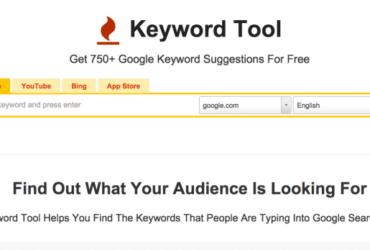A properly-orchestrated PPC campaign can benefit an excellent search engine marketing campaign, as Sergey Grybniak explores in How to Combine search engine optimization & PPC for More Powerful Results.
I like it while a capacity purchaser comes alongside who already has a lively PPC campaign.
To me, this indicates two things:
They’re a serious enterprise, making an investment cash in virtual already and are possibly to appreciate and apprehend the “advertising and marketing blend.” They have already got had, to some degree, keyword studies done for the campaigns and feature records on what is/isn’t running. This is why I’m harassed while search engine optimization professionals don’t like operating with customers who do PPC.

Both aspects can win. And whilst each side win, the purchaser wins.
We can study lots from studying each other’s facts, Concord, and respecting the extraordinary margins of blunders. Whether it’s search engine optimization or PPC, we each use the same seek phrases, the identical equipment, and the equal Google SERPs, simply in distinct methods and from distinctive views.
Search Intent Versus Search Volume
Over the years, search engine optimization specialists have used PPC equipment (e.G., Google Keyword Planner) to do keyword research. Search extent has emerged as a common metric included in pretty much every keyword research record. It’s also a metric recognized by many customers who have a simple understanding of search engine optimization. I think that seek quantity is awesome to establish some of the bigger marquee terms, particularly while you’re just starting to work in a zone or vertical that you haven’t previously labored on. However, the search extent is the most effective metric to consider when optimizing a page or to bid on a keyword.
What’s far greater essential?
Intent. Why? Because there’s little point in ranking for a 50,000 seek quantity keyword if the intent is understanding discovery. You’d be higher off concentrated on a ten,000 search extent keyword if the motive is business and “to buy.” This is something I’ve visible too often in patron PPC campaigns. One instance of purpose not being catered forgot here from a UK-based totally customer I worked with who sold language guides. In their PPC marketing campaign, they were bidding on terms like [translations English to French]
Which in the UK has an average monthly seek extent of 110,000 (in step with Serpstat). They weren’t the only organization to be bidding at the word. Still, while you study the anatomy of the SERP, you can gain a few insights into the rationale at the back of the question: From a glance at the SERP, there are no business effects or paid services ranking on Page 1. We can count on that Google understands that the user isn’t seeking out a paid carrier offering for content material translation.
However, a DIY device to carry out the interpretation themselves. When we looked at this precise keyword within the campaign, it received a variety of impressions and a small number of clicks – but wasn’t main to any smooth (or tough) conversions we should see characteristic. So we cautioned to forestall spending cash on that keyword.










